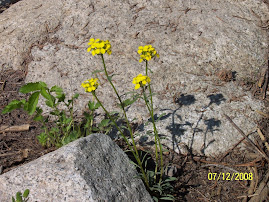Well, recently I was reading volume 2 of History of the Church, and it gives the proceedings of the first-ever meeting of the Quorum of the Twelve Apostles in our era. In fact, it was the meeting where the Twelve Apostles were chosen and ordained. The date was February 14, 1835. Just before the meeting adjourned, they sang a hymn, "Hark! Listen to the Trumpeters," which seemed appropriate in part because all of the Twelve had been members of Zion's Camp:
Hark! listen to the trumpeters![page 186]
They sound for volunteers;
On Zion's bright and flowery mount
Behold the officers.
Their horses white, their armor bright,
With courage bold they stand,
Enlisting soldiers for their king,
To march to Zion's land. . . .
We want to cowards in our bands,
Who will our colours fly:
We call for valiant-hearted men,
Who're not afraid to die.
To see our armies on parade,
How martial they appear!
All armed and dressed in uniform,
They look like men of war.
They follow their great General,
The great Eternal Lamb--
His garments stained in His own blood--
King Jesus is His name.
These are the words to "Oid el toque del clarin"! Even the meter fits. It makes me wonder how it got into the Spanish hymnal but not in the English, since it appears to be of English origin.
I had a rhetoric professor at BYU who said that since the Latter-day Saints are no longer threatened by violent mobs like we used to be in Kirtland, Missouri, and Nauvoo, the war-themed hymns are no longer relevant to us. I think I disagree. When I hear hymns like "Oid el toque" or "We Are All Enlisted" or "Onward Christian Soldiers," I don't feel stirred to take up arms against my neighbor. But I do feel inspired to defend my home against spiritual assailants, and I do gather courage to face personal adversity. There's something rousing and encouraging about those hymns. You don't have to be violent to like them. That's what I've enjoyed about "Oid el toque," and it's nice now to have it my native language.






